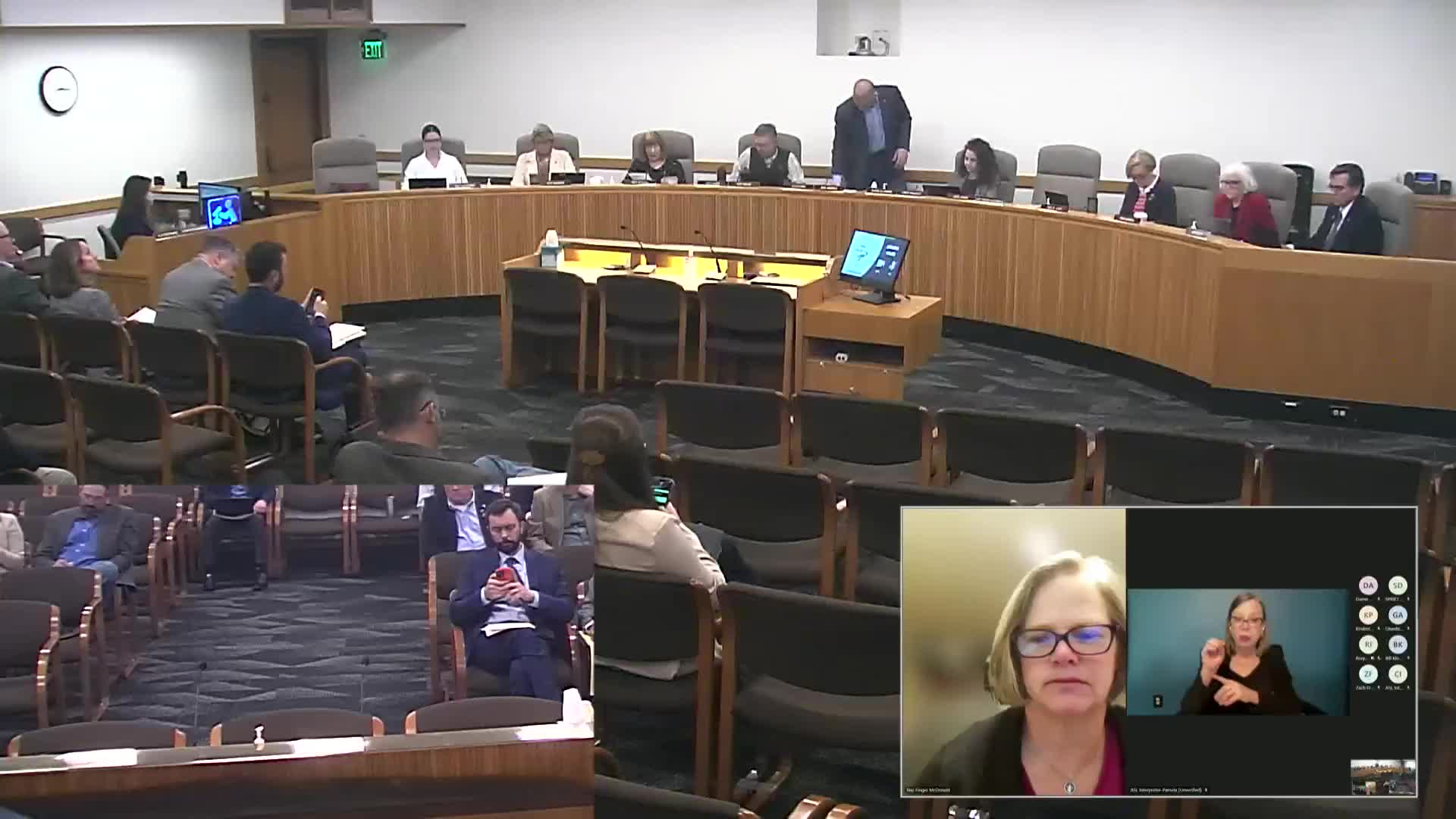Harney Basin farmers, county officials and conservation groups outline competing views at House Bill 3800 hearing
Get AI-powered insights, summaries, and transcripts
Subscribe
Summary
A lengthy public hearing on House Bill 3800 focused on groundwater over‑allocation in Harney Basin: local farmers and county officials urged statutory tools, voluntary agreements and mitigation programs to stabilize water use while conservation groups warned the draft amendments could undermine science-based rulemaking and sustainability goals.
A public hearing on House Bill 3800 on March 26 drew extensive testimony from Harney Basin farmers, county commissioners, irrigation customers and conservation groups about how to respond to groundwater over‑allocation in the basin.
Proponents — including Harney County Commissioner Rob Frank and local ranchers — said the bill would provide statutory clarity and tools for the Oregon Water Resources Department (OWRD) and the local community to pursue voluntary agreements, mitigation programs and measured reductions while protecting local economies. "We developed a groundwater use plan and an integrated water use plan," Harney County Commissioner Rob Frank told the committee, saying the bill would allow the community to use those tools and ‘‘maintain the cultural fabric of our county.’’
Speakers representing farms and businesses described long local investment in irrigation infrastructure and said abrupt agency enforcement or large immediate cuts would harm family farms and the county economy. Farmer Tom Dolman and rancher Andy Root urged flexibility, expanded voluntary agreements and nonregulatory programs to phase reductions. Local business owners warned of wider economic impacts; Harney Electric Cooperative’s general manager said irrigation customers account for about 68% of the cooperative’s revenue and predicted rate pressures if irrigation power sales fall sharply.
Conservation groups and some committee members urged caution. Zach Fried of The Nature Conservancy said he was "neutral with concerns" about parts of the proposed amendment outline and urged use of modeling and the rulemaking record to establish permissible total withdrawals. Kimberly Creasy of WaterWatch of Oregon opposed the amendment outline as presented, saying it would "undermine the state's existing statutory authority" and could authorize more pumping than the department’s rulemaking would allow.
Key points of contention in testimony included: whether statutory PTWs (permissible total withdrawals) should be set by the legislature or informed by OWRD’s ongoing Division 512 rulemaking; how to treat unused or "paper" water rights (witnesses estimated roughly 30% of basin acreage was not being irrigated and considered "paper" water); the appropriate baseline for reductions (witnesses described using a four‑year dry-period average and proposed 2.7 acre‑feet as a starting point for total duty); treatment of permit decline conditions (some witnesses sought limits on the department’s use of decline conditions); and whether the community should be allowed a multi‑decade period for voluntary reductions before stricter regulation.
Several witnesses described the procedural history: USGS studies and subsequent rulemaking and advisory committees dating back to the 2010s and early 2020s, culminating in current Division 512 rulemaking and a preferred alternative that some in the community say would impose drastic cuts in some subareas. Representative Owens and others described the bill as specific to Harney Basin and not intended as a statewide precedent for critical groundwater designations.
No final committee action occurred at the hearing; the committee opened the public hearing, took testimony, and indicated the measure will be worked on further and likely sent to Rules for additional drafting and negotiation. Committee members asked clarifying questions about economic consequences and requested refined amendment language. Speakers said they expected more detailed amendments to appear before the bill is formally moved out of committee.
"If the community did nothing and the department did less, I think what we'd see in the basin is a lot of litigation," Representative Helm said, arguing for a controlled process that could avoid contested‑case litigation. Several speakers urged that statutory language preserve opportunities for voluntary agreements and mitigation programs while remaining consistent with the department’s scientific work.
The hearing record includes public testimony both supporting and opposing the bill; conservation groups asked the committee to allow OWRD’s Division 512 rulemaking to finish rather than override it by statute. The committee will consider amendments and next steps in future meetings.
